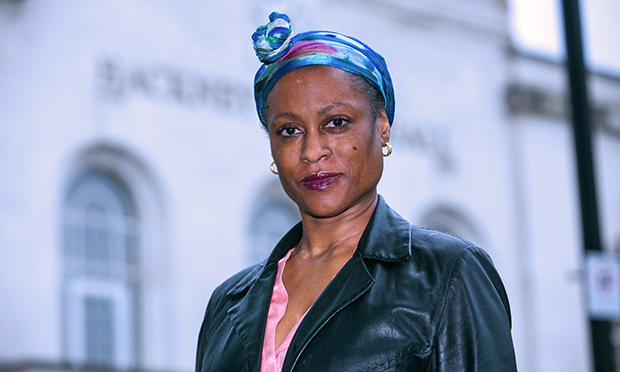Hackney’s public health director: ‘Let’s make this lockdown count’

Photograph: Hackney Council
So, we’re in another national lockdown. We now know a lot more about how the virus is spread and how to keep our communities safe and so the restrictions are more targeted than the first lockdown in the spring and it’s not expected to last as long this time. However, all of us will need to make changes to help limit the virus and protect both the NHS and our most vulnerable residents.
We have to break the cycle of how the virus spreads by strictly following the current regulations, as this will help keep our communities safe and healthy and will enable us to reopen all businesses, once it is safe to do so.
What will it take to break the cycle?
The main things that will help break the cycle are things you already know and have been doing for the past few months. Only we have to be more diligent – sticking to the rules and keeping up our good hygiene practices – if we want to stop the virus from spreading.
- We need to stick to the rules about not mixing with other people outside our households, because the fewer people we mix with, the less chance there is of catching or passing on the virus.
- We need to keep our hands as clean as possible, so that we don’t pick up the virus and pass it into our mouths, noses or eyes without thinking – HANDS
- We have to cover our noses and mouths, not only when we cough or sneeze (and then dispose of the tissue), but also with a mask when we’re in crowded places, mainly to stop spreading virus particles to others, but also to protect ourselves a bit – FACE
- We have to create a bit of space between us, making it harder for droplets containing virus particles to travel from one person to the next – SPACE.
It’s also still really important for everyone who has coronavirus symptoms, such as a new continuous cough, a change in your sense of smell or taste, and/or a fever, to get tested as soon as possible after your symptoms start by calling 119 or going to nhs.uk/coronavirus, or using the app.
What about mass testing or asymptomatic testing?
Well, recent advances in testing, such as the rapid test they’re using in Liverpool, may help in some circumstances. The approach that they’re taking in Liverpool, testing everyone in the local population, makes sense for them, because they have such high numbers of cases and have ongoing transmission of the virus between people in the community.
Even with rapid testing, you must remember that a positive test means that you need to self isolate for 10 days and all your household members and other close contacts must self isolate for 14 days. The advantage of this method is that you get your result back quicker, so that, if you have symptoms and your test result is negative, you can get back to your usual activities more quickly.
Locally we will be using this sort of rapid testing in a different way, we will target it to where it will make the most difference.
Will the vaccine end the pandemic?
It is definitely good news that there are positive results about one of the Covid-19 vaccines that are in development. It’s also good news for the UK that the government has already bought several million doses of this vaccine – enough to vaccinate 20 million people against Covid-19.
The government has also bought millions of vaccine doses from other developers, in advance, to make sure that they can get as many doses of effective vaccines as possible, to cover as much of the UK population as they can. Having said that, we won’t all get the vaccine in the first instance – it will be given to people at highest risk, such as those over 80 years of age, or who are very vulnerable to the infection because of underlying conditions.
NHS and social care staff will also be offered the vaccine, in part to keep those services going and also to keep their patients safe from infection. That means that for most of us, a Covid-19 vaccine is a way off.
We don’t need to wait to all get vaccinated to help us return to a sense of normality, we can take action now to stop the spread of the virus by reducing transmission, by keeping our contacts as low as possible, getting tested if we have symptoms and always remembering: hands, face, space.
Dr Sandra Husbands is the director of public health for Hackney and the City
For information:
The full guidance about what you can and can’t do under the new national restrictions is available on the government’s coronavirus website.
If you have coronavirus symptoms, even mild ones, please isolate yourself immediately from other people for 10 days and get a test. If you are asked to self isolate, regardless of symptoms, you must do so to keep from possibly passing it onto others. You can book a test online by downloading the NHS Covid-19 app or calling 119.
Coronavirus symptoms are:
- A high temperature
- A new, continuous cough
- A loss or change to your sense of smell or taste
